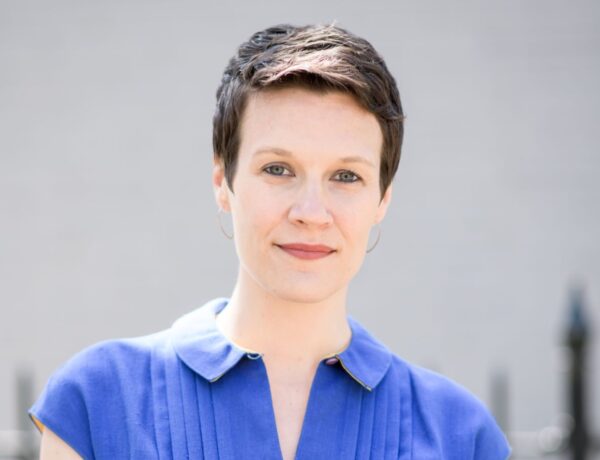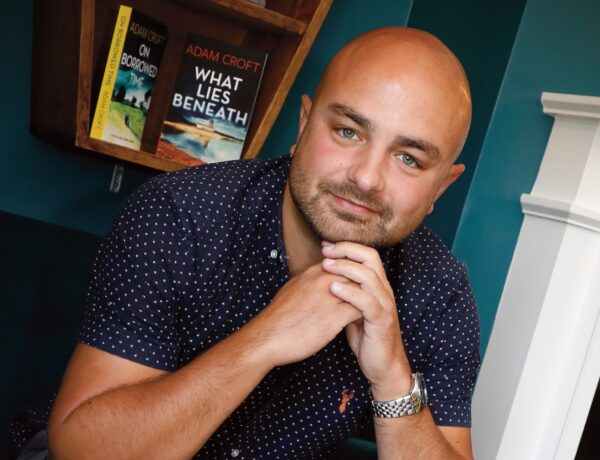Threa Almontaser is a critically acclaimed author of the National Book Award honored debut poetry collection, The Wild Fox of Yemen. Her work has been supported by the National Endowment for the Arts, the Fulbright Program, and the Rosati Writer Program at Duke.
Threa holds a Master of Fine Arts and a TESOL certification from North Carolina State University. She is an editor for Tinderbox Poetry Journal and a juror for both the Pen America Writing for Justice Fellowship and the Scholastic Arts and Writing Awards.
In this interview, we sit down with Threa to delve into her experiences teaching English to immigrants and refugees and how it influenced her book, her writing process, and the themes and imagery in her work.
She also talks about balancing her different roles in life, the impact of receiving support from programs such as the National Endowment for the Arts and the Fulbright Program on her career, and shares advice for aspiring poets and writers.
Each week, we publish a new daily writing routine from a famous author. Subscribe to our newsletter so you don’t miss out!
Hello Threa! We are excited to have you join us on Famous Writing Routines. For those readers who may not be familiar with your work, could you please provide us with a brief introduction about yourself?
I’m the author of the poetry collection The Wild Fox of Yemen. I write a lot about language and tribal history and sexuality within the Arab-American experience.
This book is a love letter to the country and people of Yemen, a portrait of young, Muslim womanhood in New York City after 9/11, and an examination of what it means to carry in the body the echoes of what came before – my polyvocal poems sneak artifacts to and from worlds, repurposing language and adapting to the space between cultures.
How did your experiences teaching English to immigrants and refugees influence The Wild Fox of Yemen?
As the eldest child in an immigrant family, I’ve always been designated translator growing up. It’s a title that fell into my lap effortlessly, and in doing so I was able to perceive these language barriers and fragmented interactions second-hand. My upbringing plays a big factor in wanting to teach English – to build more solid relationships, break misconceptions and barriers, and help bring out the impactful narratives and voices of the ESL learner.
Can you tell us a bit about your process for putting together the collection? How did you approach crafting the themes and imagery in the book?
Some of the poems in the book had their first beginnings in NC State’s MFA workshop. The writing process I used there and the feedback that was given helped me clarify the sensations or experiences in my work that were once kept opaque to me. The poems were expanded greatly during my time there, which helped me take concrete steps towards carving out the shape of the book.
How do you balance the different elements of your life, such as teaching, editing, and writing, to find inspiration for your work?
I’m still trying to figure out that balancing act!

What role do you believe storytelling and the creative arts play in promoting empathy and understanding?
I also mention this briefly on my website, but I believe even in troubling times, the artistic gaze is important and impactful in showcasing what is humane and what isn’t. A writer’s responsibility is the same as any other during crucial times: to address and summon and portray. Poetry in particular encapsulates broader moments of time and should enlarge its seat in the world.
You mentioned that you believe writing should not only entertain, but also provoke. Can you give an example of a poem or piece of writing that you feel successfully achieves this balance?
My poem Ode to Bodega Cats comes to mind when I think of provocation and entertainment mingled together.
Can you speak to the impact of receiving support from programs such as the National Endowment for the Arts and the Fulbright Program on your writing career?
To me, it means recognition that I’m on the right path, that doing what I’m passionate about works. It means I can connect with more people and create positive change on a bigger scale.
What advice would you give to aspiring poets or writers just starting out on their creative journey?
My friendships with other artists, often in different genres, have nourished and encouraged my soul a million times over. Surround yourself with a community of people, whether face-to-face or online, who genuinely want to see you succeed, those who celebrate your successes even louder than you do.
Disentangle yourself from that vision of success or victory being in the hands of the institution. Ask yourself, “What keeps me lit and lifted?” then embrace those things with your whole chest. Because you can get lost in the hustle proving that you deserve to be somewhere, and it’s very tough work.
What does your writing workspace look like?
My writing workplace varies—I move around a lot, so anything with a flat surface works for me!
Affiliate disclaimer: Some links on this website are affiliate links. We may earn a small commission if you make a purchase through these links, but only promote products we truly believe in. We disclose affiliate links and give honest reviews.



No Comments